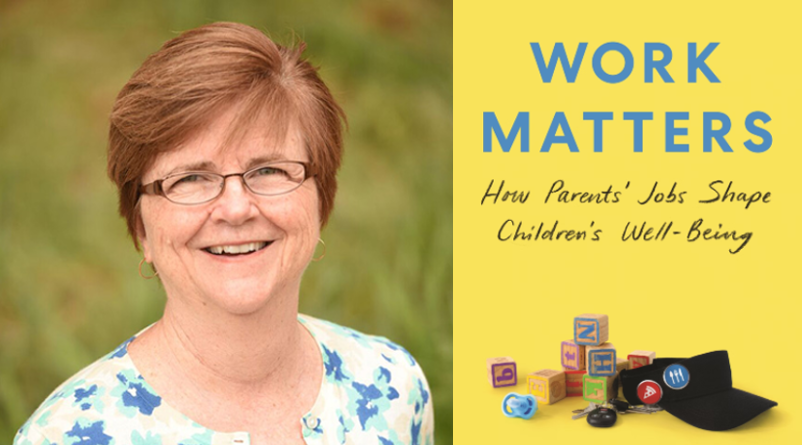CCF Expert and Director of Research and Public Education Stephanie Coontz spoke at the recent opening of Legacy Washington’s “Love, Equally” exhibit. View her full speech below or on YouTube.
Uncategorized
Pallavi Banerjee

Associate Professor of Sociology, University of Calgary
Email: pallavi.banerjee@ucalgary.ca
Twitter: @pallavib
Website: https://criticalmigration.org/
Topics of Expertise: Children / Division of Labor in Families / Feminism & Families / Gender & Sexuality / Immigrant, Mixed Status, & Transnational Families / Parenthood / Work & Family
Pallavi Banerjee is an Associate Professor in the Department of Sociology at the University of Calgary since 2015. Before this, she was a postdoctoral fellow at the sociology department at Vanderbilt University. She received her Ph.D. in Sociology from the University of Illinois, Chicago in December of 2012.
Her research interests are situated at the intersections of the sociology of immigration, refugee studies, gender, unpaid and paid labor, intersectionality, transnationalism, minority families, and the Global South. Her book entitled, The Opportunity Trap: High-Skilled Workers, Indian Families and the Failures of Dependent-Visa Policy was published by NYU Press in 2022, explores how the immigration and visa regimes of the United States affect men tech-worker and women nurses’ families of Indian immigrant professional workers in the U.S. Her other award-winning research has been published in many peer-reviewed journals including the American Behavioral Scientist, Gender Work and Organizations, Studies in Social Justice, Sociological Forum, Women, Gender, and Families of Color, among other journals.
She is currently working on a book manuscript on how refugee resettlement creates gendered labor regimes among Yazidi, Syrian and Rohingya refugees in the U.S. and Canada. She also is co-writing a book with her doctoral student, entitled Gender: New Trajectories in Law contracted with Routledge Press. She has also written opinion pieces in venues such as The Globe and Mail, The Conversations, and Ms Magazine and her research has been cited widely in the media in the U.S., Canada, and India.
She is currently co-editing two Special Issues for the journals Gender and Society and Canadian Ethnic Studies. She has been on the editorial boards of Gender and Society and the Journal of Family and Economic Issues for the last four years. Dr. Banerjee directs the Critical Gender, Intersectionality, and Migration Research Group at the University of Calgary, and her research is funded by Social Sciences and Humanities Research Council (SSHRC), Canada, and Immigration, Refugees and Citizenship Canada (IRCC).
Keli Rugenstein

Co-Director, P.E.A.K.; Author, Relationsnip; Executive Director, Eastern Door Counseling Center
Email: krugenstein@easterndoor.org
Website: parentsofestrangedadultkids.com
Twitter: @KeliRugenstein
Topics of Expertise: Aging / Family Counseling, Therapy & Parenting Intervention
As a marriage and family therapist I have worked with family estrangement for over twenty years. My expertise is in the area of recovery for parents who have been estranged by their adult children. I am also specialized in clergy and clergy family dynamics and how these intersect with the dynamics of congregations and their expectations of the clergy person.
CCF Board Member Maureen Perry-Jenkins Discusses New Book on NPR’s Think Podcast

CCF Board Member and Expert Maureen Perry-Jenkins appeared on NPR’s Think podcast to discuss her new book, “Work Matters: How Parents’ Jobs Shape Children’s Well-Being.” Maureen talks with host Krys Boyd to discuss “the working conditions of parents who must return to work weeks after giving birth and the challenges they face raising healthy children.” Listen to the podcast here.
Podcast link: https://think.kera.org/2022/08/29/when-you-need-your-job-and-your-kids-need-you/
Jessica Leveto

Associate Professor of Sociology, Kent State University
Email: jleveto@kent.edu
Website: https://www.kent.edu/sociology/profile/jessica-leveto
Twitter: @profjess
Topics of Expertise: Parenthood: Motherhood & Fatherhood / Labor & Workforce / Work & Family
Jessica A. Leveto, Ph.D., is an Associate Professor of Sociology. She is a sociological social psychologist with expertise in family, motherhood, identity, mental health, neurodiversity, emotion, scholarship of teaching and learning, and higher education.
Dr. Leveto is currently examining the impact and experiences of mothers/caregivers in academia and policies that will make higher education more accessible; her work addresses the impact of COVID-19, faculty burnout, and the accessibility of higher education for parenting/caregiving students. Dr. Leveto has experience in quantitative, qualitative, and mix-method research, including analysis using SPSS, STATA, AMOS, and MAXQDA. She has been published in various outlets, including Sociology Compass, Current Psychology, Advances in Group Processes: Biosociology and Neurosociology, and New Directions in Identity Theory and Research (Oxford University Press).
Dr. Leveto is the founder and administrator of Ph.D. Mamas. Ph.D. Mamas is a global online support community of over 16k mothers in academia. Dr. Leveto recently became Vice President of Academic Mama Foundation, with a mission of empowering academic mamas by awarding grants supporting the pursuit of an academic career while raising children.
She is a proud first-generation college graduate committed to diversity, equity, and inclusion of historically underrepresented and marginalized groups. She is the mother of three, Liam (22), Ryleigh (8), and Lillian (6)
NEW FROM CCF! No More in the Shadows: Racism, Family Structure, and Black Families
AUSTIN – 10/13/2022: Why does family structure—aka marriage–remain such an enduring explanation for Black-White inequality in the US? That’s the central question in a new article, “Racism, Family Structure, and Black Families,” made available this week as an open-access preprint shared at SocArxiv. The article has been accepted for the forthcoming Council on Contemporary Families anthology, Families as They Really Are published by Norton Books.
Lead author, University of Tennessee sociologist Deadric Williams, has a detailed answer you can read in the new chapter. But he also has an answer to the central question in brief: “The belief that marriage is an inequality reducing mechanism serves as a racial ideology maintaining the status quo.”
The new article brings the receipts. In particular, Williams’ article, coauthored by Caroline Sanner (Virginia Tech), Todd Jensen (UNC-Chapel Hill), and Laura Simon (Mercer University), offers a history of claims that family structure is to blame for inequality, starting with the Moynihan Report of 1965. The authors review evidence for its limitations and set forward an alternative way to understand the many varieties of families that exist.
Dr. Williams explains: “We know that when compared to White Americans, African Americans are less likely to marry and more likely to experience a non-marital birth.” He continues, “Yet prior studies show that family formations do not account for the Black-White inequality gap.” The authors show how the benefits of family structure are not equally distributed between Black and White families when it comes to child outcomes. These patterns parallel results in education, health, and wealth accumulation outcomes, to name a few.
“With scant evidence, family formations remain an enduring explanation for scholars, layperson, and policymakers alike. Entire foundations and grants programs are built around supporting this line of thinking. Acting as if people are already on equal footing, and that ‘these days’ everyone starts with equal chances, can help people make sense of racial inequality as something that is the consequence of personal choices. But repeating that story again and again doesn’t make it so,” notes Virginia Rutter, CCF senior scholar and editor of the new edition of Families as They Really Are.
Dr. Williams and his colleagues note: “Family structure is a racial ideology based on the erroneous notion that (1) race is an essentialist characteristic and (2) individual-level characteristics (e.g., family structure) account for racial inequality. We conclude the chapter by championing Critical Race Theory as a powerful tool for charting a path forward for understanding African American families.”
-MORE-
REFERENCE: Williams, D. T., Sanner, C., Jensen, T. M., & Simon, L. (2022, October 7). Racism, Family Structure, and Black Families. https://doi.org/10.31235/osf.io/3u6jn
FOR MORE INFORMATION, CONTACT:
Deadric T. Williams, Assistant Professor, Department of Sociology, University of Tennessee, Knoxville, dwill196@utk.edu. Dr. Williams is a keynote speaker at the NCFR annual conference, November 18, 2022, on “Bringing Racism out of the Shadows in Family Science.”
To learn more about Families as They Really Are and the forthcoming 3rd edition, contact:
Virginia Rutter, Professor (retired), Department of Sociology, Framingham State University, vrutter@framingham.edu. Dr. Rutter is editor, with Kristi Williams (Ohio State University) and Barbara Risman (University of Illinois at Chicago).
-MORE-
The Council on Contemporary Families, based at the University of Texas-Austin, is a nonprofit, nonpartisan organization of family researchers and practitioners that seeks to further a national understanding of how America’s families are changing and what is known about the strengths and weaknesses of different family forms and various family interventions.
The Council helps keep journalists informed of notable work on family-related issues via the CCF Network. To join the CCF Network, or for further media assistance, please contact Stephanie Coontz, Director of Research and Public Education, at coontzs@msn.com, cell 360-556-9223.
Follow us! @CCF_Families and https://www.facebook.com/contemporaryfamilies
Read our blog Families as They Really Are – https://thesocietypages.org/families/
-end-
October 13, 2022
